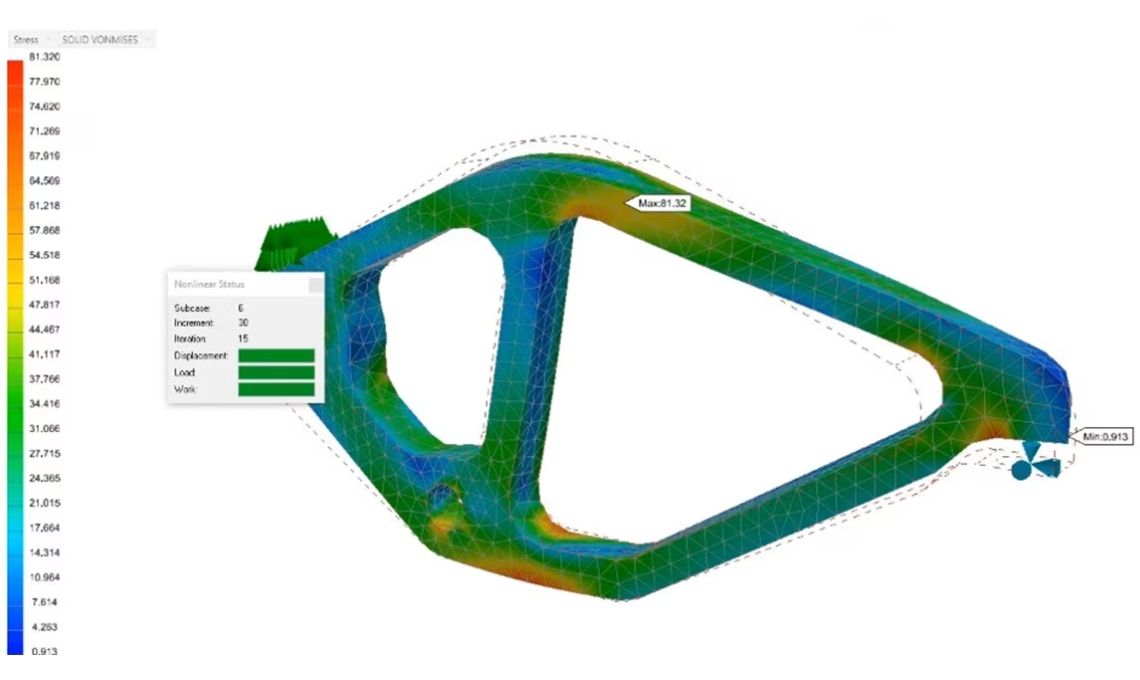In today’s fast-paced and ever-evolving digital landscape, manufacturing industries are continuously seeking innovative solutions to enhance production security and efficiency. One pivotal strategy is leveraging Product Lifecycle Management (PLM) systems.
These systems not only optimize manufacturing processes through digitalization but also significantly improve production security. From the early design phase to the end of the product lifecycle, integrating a PLM solution with a PDM collection can transform how industries approach production, fostering resilience and collaboration across departments.
In this article we want to show you the fundamental role of PLM in strengthening production security, highlighting its benefits and how it fosters collaboration and resilience in unforeseen circumstances.
Centralizing Data with PLM and PDM Integration
The integration of Product Lifecycle Management (PLM) with Product Data Management (PDM) systems forms the backbone of modern manufacturing’s drive towards digital transformation.
This convergence is not just about technology adoption; it’s about reshaping how information is managed, accessed, and utilized across the entire lifecycle of a product. By centralizing data through PLM and PDM integration, companies unlock a plethora of benefits that significantly enhance production security and operational efficiency.
Unified Data Ecosystem
At its core, the integration of PLM and PDM creates a unified data ecosystem, making it the single source of truth for all product-related information. This ecosystem encompasses everything from design sketches and materials specifications to manufacturing processes and customer feedback.
Enhanced Cross-functional Collaboration
The siloed nature of traditional manufacturing processes often hinders efficient communication and collaboration between departments. PLM and PDM integration breaks down these barriers by providing a platform where data flows seamlessly between design, engineering, production, and quality control teams.
Enhanced visibility into project statuses and changes ensures that every team member can make informed decisions based on the latest data.
Streamlined Compliance and Quality Control
Compliance with industry standards and regulations is a critical concern for manufacturers. The centralized data management facilitated by PLM and PDM integration greatly simplifies compliance tracking and quality control processes.
With all product information meticulously documented and readily accessible, companies can more easily adhere to regulatory requirements and maintain high-quality standards throughout the product lifecycle.
Optimizing Manufacturing Processes through Digitalization
Digitalization stands as a cornerstone in modern manufacturing, offering unprecedented opportunities for efficiency and innovation. PLM solutions are at the forefront of this transformation, enabling companies to leverage digital tools and processes to refine and optimize their production lines.
Through digitalization, PLM systems can automate workflows, facilitate real-time monitoring, and enhance decision-making processes. By adopting PLM, manufacturers can reduce time-to-market, minimize costs, and improve product quality, thereby enhancing production security and competitiveness in the global market.
Fostering Collaboration and Resilience
In an era where production cycles are increasingly complex and distributed across geographical boundaries, fostering collaboration is more critical than ever. PLM solutions excel in breaking down silos and facilitating seamless collaboration among cross-functional teams.
By providing a centralized platform for data and communication, PLM ensures that all stakeholders, from suppliers to customers, are aligned and informed. This collaborative environment not only enhances production security by ensuring consistency and accuracy but also builds resilience against unforeseen events such as supply chain disruptions or sudden market changes.
Automating Workflows for Enhanced Security
A significant advantage of PLM systems is their ability to automate workflows, which plays a crucial role in enhancing production security. Automated workflows reduce the reliance on manual processes, thereby minimizing the risk of human error and enhancing efficiency.
Moreover, automation enables businesses to enforce standardized procedures across all stages of the product lifecycle, ensuring compliance with industry regulations and quality standards.
By automating critical processes, PLM solutions help safeguard the integrity of the manufacturing process, protecting against both internal and external threats.
Addressing Unforeseen Events with Agility
The capacity to quickly adapt and respond to unforeseen events is a hallmark of a resilient manufacturing operation. PLM systems are designed to provide the agility businesses need to face unexpected challenges, whether they are related to supply chain disruptions, changes in customer demand, or regulatory updates.
With PLM, companies can swiftly adjust their production plans, manage changes in product design, and communicate modifications across the organization and with external partners. This agility ensures that businesses can maintain production security and continuity, even in the face of adversity.
Conclusion
In the digital era, enhancing production security is paramount for manufacturing industries aiming to remain competitive and resilient. PLM solutions, integrated with a robust PDM collection, offer a comprehensive approach to achieving this goal.
By centralizing data management, optimizing manufacturing processes through digitalization, fostering collaboration, automating workflows, and enabling agility in response to unforeseen events, PLM systems provide a foundation for enhanced production security.
As industries continue to navigate the complexities of the digital landscape, embracing PLM will be critical for building a secure, efficient, and adaptable manufacturing ecosystem.









